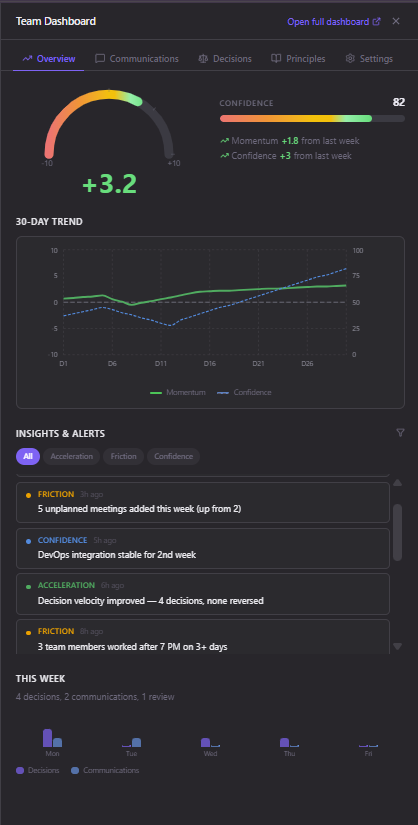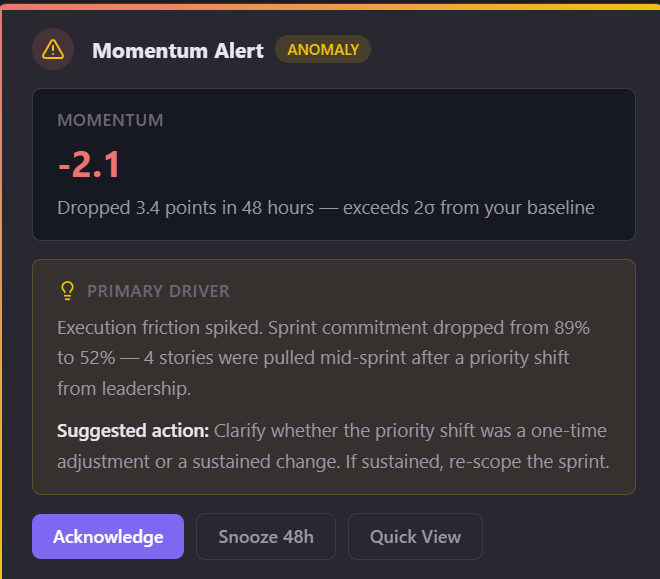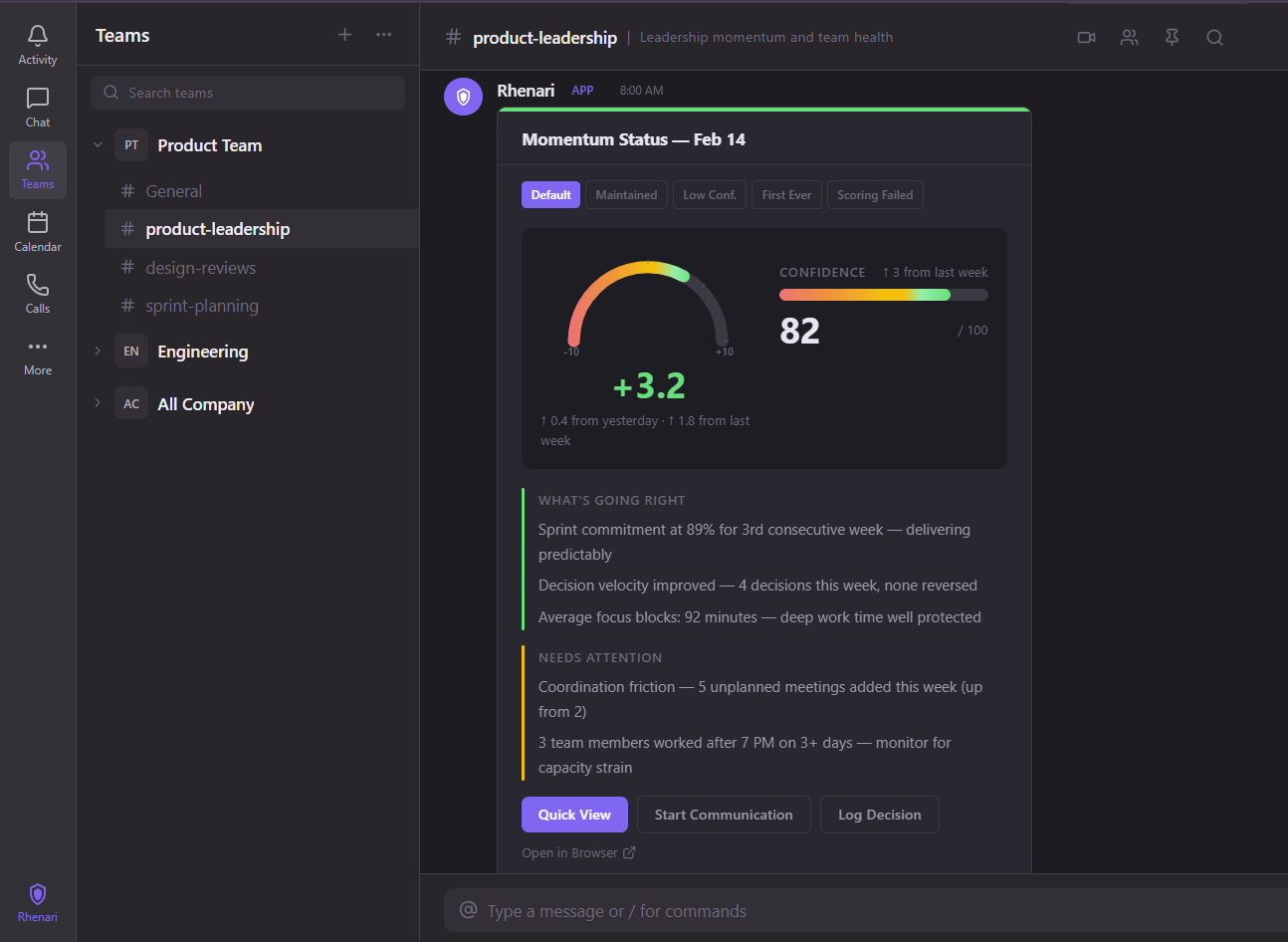Your roadmap is slipping.
Your team is burning out.
Which do you solve first?
With Rhenari, the answer is both. Rhenari is an AI-powered Teams plugin that connects to your existing tools and shows you what your reports aren't telling you — where teams are drifting, where people are overloaded, and what to do about it.
Let's chat about joining the beta
You're drowning in dashboards and chasing down metrics, when you really need to know just two things:
Momentum — is your org actually moving toward the goal, or just staying busy?
Confidence — how much should you trust that answer?
Every insight you're chasing across standups, status meetings, and spreadsheets is an indication of these two. Rhenari gathers that data for you, then calculates momentum and confidence continuously from the work patterns your team is already generating — and uses them to tell you exactly where things are drifting, why, and what to do about it.

Here's an example
Your dashboard told you this project is on track. What it didn't tell you is that there have been 6 'quick syncs' about scope, and direction changed each time. Now the project barely resembles what the dependent team is expecting.
Your Project Dashboard
- Velocity: normal range
- Blockers: 0 critical
- Status: all green ✓
Rhenari’s View
Alignment shift: 34% from original intent
Confidence: declining 2 consecutive weeks
Pattern: Alignment Theater
Verbal agreement masking directional divergence
Your dashboards said this project was on track. Rhenari respectfully disagreed, with receipts, three weeks earlier.
It lives where work lives.
Rhenari is a Microsoft Teams plugin. Install it once, and it becomes part of how your org already operates. Behind the scenes, Rhenari connects to the tools your team is already using — project management, communication, collaboration — and reads the patterns across them. Your data never leaves your environment. Individual behavior is never surfaced.
Everything Rhenari shares with leaders is anonymized and aggregated — because organizational intelligence shouldn’t come at the cost of individual trust.

Day 1 — Analyzing Your History
Rhenari connects to your existing tools and reads 30 days of work patterns — communication rhythms, decision cadence, workload signals. Your data stays in your environment. Nothing is shared, nothing leaves.

What would you do with 40% of your week back?
That’s how much of the average product leader’s week goes to roadmap overhead — status meetings, alignment corrections, chasing updates, interpreting dashboards that tell you what happened but not why.
Rhenari replaces the overhead with answers. Check your Momentum and Confidence scores in about 30 seconds each morning. Get an alert when something’s drifting. Ask Rhenari why, and get a real answer — not a dashboard you have to interpret yourself.
Ready to see what you've been missing?
Not convinced yet? Good.
Five emails. Five patterns your dashboards can't see. One new way to understand why your roadmap keeps slipping — delivered over two weeks.
Want to see inside?
Tell us what you're seeing in your organization. Three questions, sixty seconds. If there's a fit, we'll find 30 minutes to explore it together.
